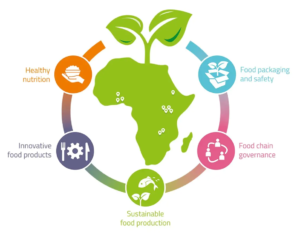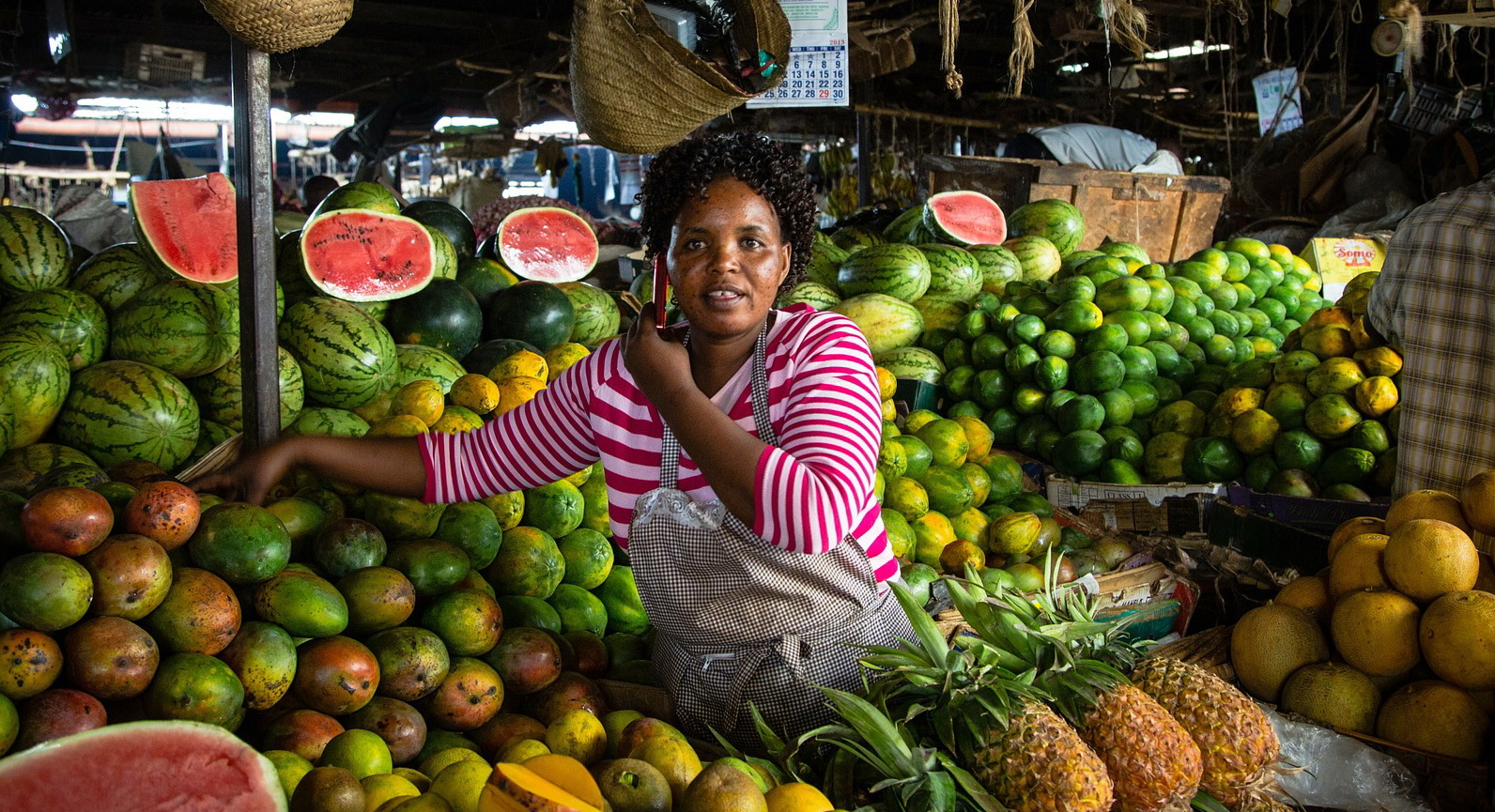Local solutions for current challenges in African food systems: Lessons learned from the 1st year of the HealthyFoodAfrica project |Daniel Alpízar
Written by Daniel Alpízar
More than 50 project partners from 17 European and African teams participated in the 2nd annual consortium meeting of the EU-funded research & innovation project HealthyFoodAfrica. One year has passed since the beginning of the project marked by many achievements and significant learning. HealthyFoodAfrica aims for sustainable, equitable, and resilient food systems in African cities, localized in six Eastern, Western, and Southern African countries. The collective aim of the European and African partners is to improve nutrition in Africa by strengthening the diversity, sustainability, resilience, and connectivity of food systems. This is being accomplished by bringing together local food system actors to tackle context-specific food system challenges through Food System Labs (FSL’s).
Challenges in food systems transformation in Sub-Saharan Africa
During the meeting, many trends such as climate change, rapid population growth, urbanization, and gender disparities in the African continent were at the core of the discussion. As food systems transform rapidly in Africa, challenges arise for vulnerable agricultural producers and consumers. Natural resources scarcity, migration to cities, poor agricultural infrastructure, food losses, gender inequality, dependence on commodity markets, market imbalances, and triple burden of malnutrition are recognized as problems resulting from these trends that exacerbate inequality in the food systems. These problems tend to create loops making it difficult for vulnerable actors from the food system to escape from poverty and exert their right to food.
In most countries in Sub-Saharan Africa, an increasing number of imported domestic products and an increasing number of new supermarkets often create difficulties for local producers to compete with the low cost of raw material and relative quality found in other foreign countries. This further aggravates power disparity in favor of big retail companies. Therefore, the importance of investing in innovation addressing societal challenges – such as fostering the competitiveness of local producers under a food security and nutrition scheme – is becoming more apparent. The project objectives pay attention to these challenges and focus on achieving sustainable food production and consumption patterns to counteract social inequality, environmental degradation, food loss, and inadequate waste management. To steer the wheel of transformation, 5 thematic Work Packages involving the partners with specific expertise from Europe and Africa collaborate directly in 10 Food System Labs.
Thematic Work Packages in the HealthyFoodAfrica project

Local solutions to food systems challenges
Most of the FSL’s have already built a multi-stakeholder platform, while others are currently mapping relevant actors to involve in the cooperation. Both are crucial steps for facilitating synergies in the creation of innovative solutions. Actors involved in the multi-stakeholder platform include food suppliers, practitioners, policy and decision-makers, citizen-consumers, a scientific community, and “Upscalers” (e.g. investors, funding agencies, private sector businesses). Attention is also paid to the inclusion of women in the activities as a key element to improve gender equality. Through these platforms, FSLs aim to enable the necessary transformation to face existing challenges using local solutions. This will be achieved via creating space for innovation and transformation and engaging small farmers through participatory approaches.
Innovations focusing only on increasing yields are insufficient to boost the agricultural economy and food security and nutrition. Therefore, the FSLs have come up with local innovative solutions to their specific challenges through the stakeholders’ platforms. Some FSLs, for example, propose using mobile apps as a way to link farmers to traders related to the management of food stocks. These apps will show real-time prices accessible to anyone and also provide technical assistance and information on the production. The use of these technologies would allow small farmers and other supply chain actors to have a more balanced share of the final product value, as often small farmers in rural areas have little information about the market.
Regarding the nutritional aspect, training and urban gardening have been suggested as solutions to feed an increasing urban population with healthier diets. One of the illustrative examples is FSL-Tamale in Ghana that has come forward with an idea of creating a network of youth ambassadors. The ambassadors will be trained in schools about sustainability and healthier diets in a way that they will be able to disseminate the knowledge on how to produce and consume healthier food through demonstrative school gardens. Many FSLs are focusing on the importance of traditional leafy vegetables, fruits, and grains which not only have great potential to contribute to healthier diets and tackle the triple burden of malnutrition but would also utilize, promote and preserve local knowledge. FSL-Accra in Ghana, as another example, centers its work on innovations in sustainable packaging, traceability, and sustainable business models not only in traditional leafy vegetables but also in fish production to facilitate the rapid transformation of the food system and promote healthy dietary lifestyles.
In HealthyFoodAfrica, the Pisa Agricultural Economics group (University of Pisa) co-leads Work Package 6 on Innovative food products and supports the implementation of the tasks within Work Package 5 on Foodchain governance. Related to these, our main goal in HealthyFoodAfrica is to support FSLs in the production of novel, sustainable, and nutritious food products. The other focus of our work is building capacity for developing innovative food products, processes, and agri-business models.
Project coordinator: Natural Resources Institute Finland (Luke)

* This project has received funding from the European Union’s Horizon 2020 research and innovation programme under grant agreement No 862740.


